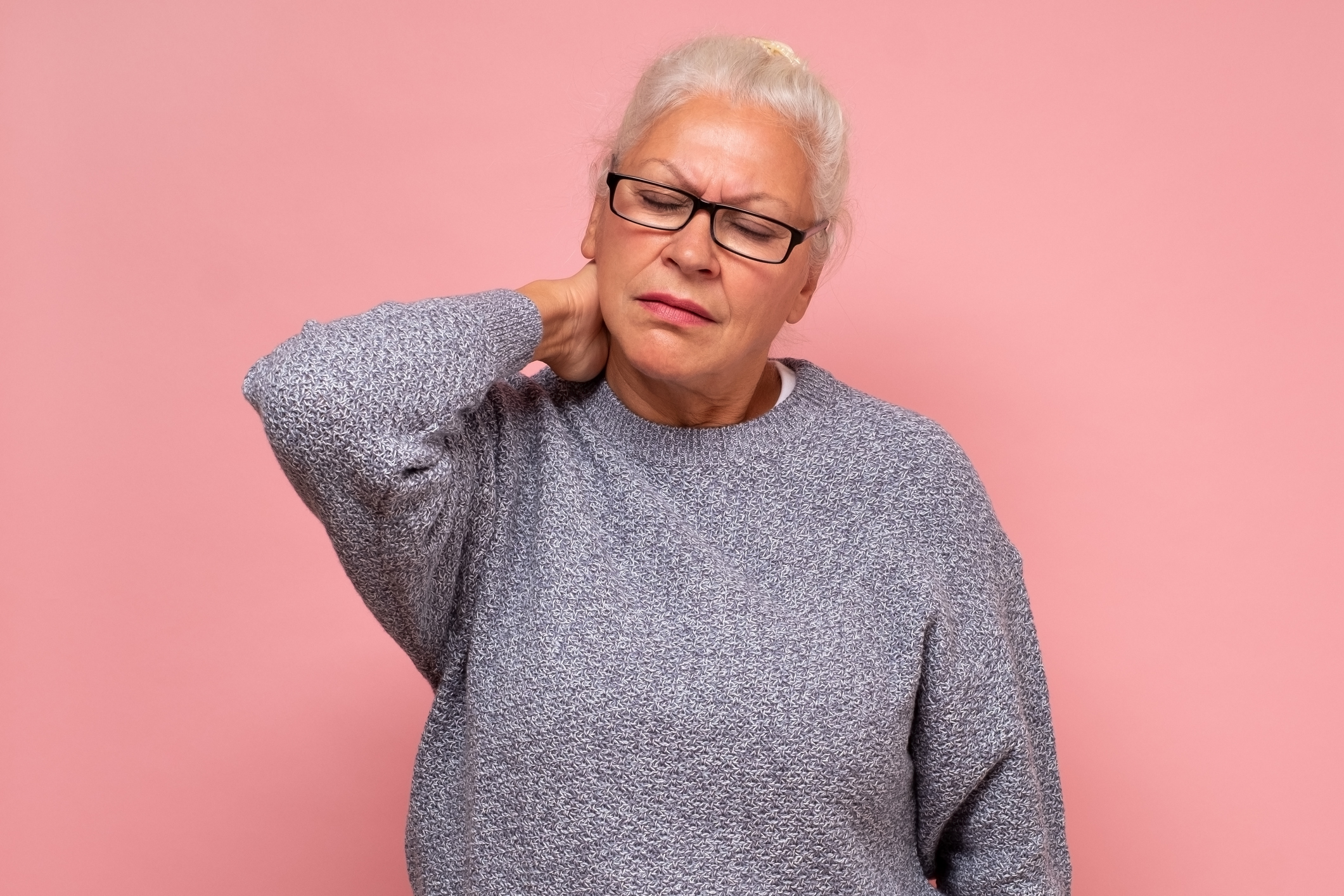Get Easy Health Digest™ in your inbox and don’t miss a thing when you subscribe today. Plus, get the free bonus report, Mother Nature’s Tips, Tricks and Remedies for Cholesterol, Blood Pressure & Blood Sugar as my way of saying welcome to the community!
The real reason fibromyalgia increases pain sensitivity

Imagine being in pain all over your body, feeling crushingly tired and weak, and being so foggy-brained that you can hardly accomplish simple, everyday tasks. For someone who lives with fibromyalgia, this is reality.
Now, imagine feeling like this every day, for years, and being told over and over again that it’s “all in your head.”
Finally, imagine your doctor telling you that it’s arthritis, Lyme disease, even depression that’s causing these symptoms when you know it’s none of those things.
For years, doctors have considered fibromyalgia to be a condition that originates in the brain and has no known cause or cure, other than some symptom relief.
But a breakthrough study has shown that fibromyalgia originates in another place entirely — and that effective treatments are well within our reach…
When the immune system goes haywire
Like an internal police force, a healthy immune system is always on duty, protecting you from the millions of harmful bacteria, microbes, viruses, and toxins you encounter each day.
If these invaders do get inside your body through a break in the skin, your nose or mouth, or a leaky gut, your immune system responds. This happens all over your body — in your blood, major organs, muscles and bones.
Autoimmune diseases develop when the immune system becomes hyper-vigilant and attacks healthy and unhealthy cells. It can no longer tell the difference between your healthy body and the pathogenic invaders it normally goes after.
Immune response and inflammation go hand in hand, and T cell-mediated inflammatory response has been recognized for playing an essential role in the development of autoimmune diseases, including lupus, multiple sclerosis, psoriasis and rheumatoid arthritis.
Now, thanks to a groundbreaking study, we can add fibromyalgia to the list of autoimmune diseases, opening the door to better diagnosis and treatment for the millions who live with this painful condition.
Antibodies that make nerves too sensitive to pain
New research has shown that fibromyalgia isn’t all in your head — it’s caused by an overactive immune system.
Researchers from the Institute of Psychiatry, Psychology & Neuroscience at King’s College London, the University of Liverpool and the Karolinska Institute of Sweden, have proven that fibromyalgia is an autoimmune disease, just like rheumatoid arthritis, lupus, or psoriasis.
They injected mice with antibodies from persons living with fibromyalgia and found that the mice quickly developed two common fibromyalgia symptoms: increased sensitivity to pressure and cold, and reduced grip strength.
After a few weeks, once the injected antibodies had been cleared from their systems, the mice made a full recovery.
Treatments already exist that reduce antibody levels in patients, and these results strongly suggest that those same therapies would work against fibromyalgia.
“The implications of this study are profound, says Dr. David Andersson, the study’s primary investigator from King’s College.
“Establishing that fibromyalgia is an autoimmune disorder will transform how we view the condition and should pave the way for more effective treatments for the millions of people affected. Our work has uncovered a whole new area of therapeutic options and should give real hope to fibromyalgia patients.”
Why does the immune system fail us?
Doctors aren’t exactly sure why the immune system sometimes fails. But they do have clues.
The immune system is hard-wired to our central nervous system (CNS), so when the CNS is healthy, the immune system runs on auto-pilot.
Unfortunately, we are our own worst enemies when it comes to keeping our nervous system healthy and our immune system functioning properly.
We know that these eight habits have a direct (and harmful) impact on our immune system:
- Lack of sleep. Your body releases cytokines (proteins that help the immune system) only during sleep. So not getting enough hours of restful sleep makes it more likely that viruses and germs will make you sick.
- Stress. Just having anxious thoughts can weaken your immune response in as little as thirty minutes. Constant stress takes an even bigger toll.
- Low Vitamin D. The sunshine vitamin isn’t just good for strong bones and teeth. It also is essential for boosting your immune system.
- Not enough outdoor time. Sunlight energizes special immune cells called T-cells that help fight infection.
- Medications. Corticosteroids, TNF inhibitors for inflammation and chemotherapy for cancer can all inhibit the immune system. Talk to your doctor to see if your medications are keeping your immune system from working well.
- Not enough fruits and veggies. Many nutrients found in fresh produce, nuts, and seeds may help your body make more white blood cells to fight off infection. Zinc, beta-carotene and vitamins A, C, and E all strengthen the immune system.
- A high-fat diet. Oils can hinder germ-fighting white blood cells. And high-fat diets over time can upset the balance of bacteria in your gut that can help the immune response.
- Smoking. Nicotine can weaken your body’s ability to fight germs. So can the other chemicals you inhale while vaping.
Editor’s note: Did you know that when you take your body from acid to alkaline you can boost your energy, lose weight, soothe digestion, avoid illness and achieve wellness? Click here to discover The Alkaline Secret to Ultimate Vitality and revive your life today!
Sources:
Fibromyalgia likely the result of autoimmune problems — Science Daily
Is Your Immune System Unhealthy? Why Things Can Go Wrong — Cleveland Clinic













